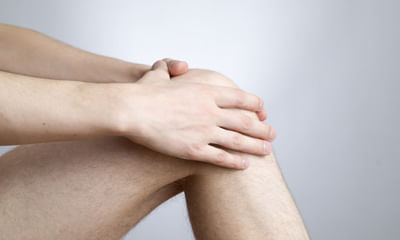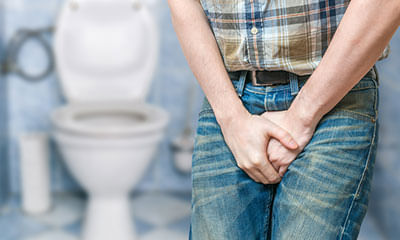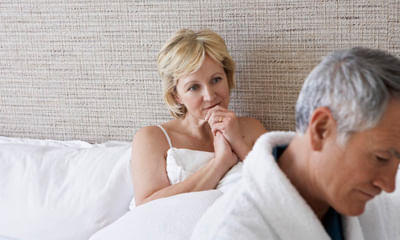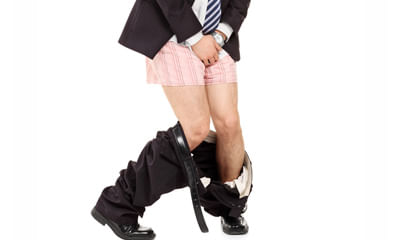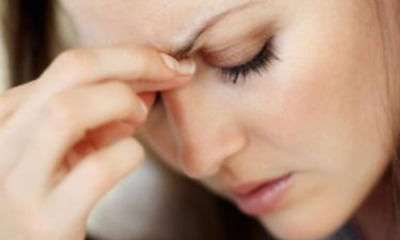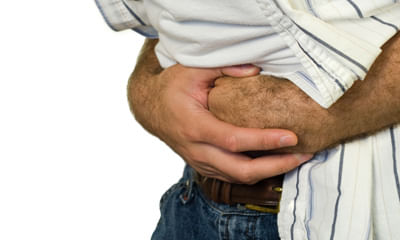Urinate Frequently After Drinking Water
I am 35 years old I will not proper sleep and I have leg pain always in legs and sometimes cramp also. ...
Ask Free Question
Difficulty sleeping and leg pain, including cramps, can have various causes and may require different approaches for management. Here are some general suggestions that may help improve your sleep and alleviate leg pain: improve sleep hygiene: establish a regular sleep schedule by going to bed and waking up at the same time every day, even on weekends. Create a relaxing bedtime routine to signal to your body that it's time to wind down, which may include activities like reading, taking a warm bath, or practicing relaxation techniques such as deep breathing or meditation. Create a comfortable sleep environment: make sure your bedroom is conducive to sleep by keeping it dark, quiet, and cool. Invest in a comfortable mattress and pillows that support your body and promote proper alignment. Limit stimulants and electronics: avoid consuming caffeine or nicotine close to bedtime, as they can interfere with sleep. Additionally, limit exposure to electronic devices such as smartphones, tablets, and computers before bedtime, as the blue light emitted from these devices can disrupt your sleep-wake cycle. Manage stress: stress and anxiety can contribute to difficulty sleeping and exacerbate leg pain. Practice stress-reduction techniques such as mindfulness meditation, progressive muscle relaxation, or yoga to help calm your mind and relax your body before bedtime. Address leg pain and cramps: if you're experiencing frequent leg pain and cramps, it's essential to identify and address the underlying cause. Common causes of leg pain and cramps include muscle fatigue, dehydration, electrolyte imbalances, nerve compression, and certain medical conditions such as restless legs syndrome or peripheral artery disease. Consult with a healthcare professional to determine the cause of your leg pain and cramps and develop an appropriate treatment plan. Stay hydrated: drink an adequate amount of water throughout the day to prevent dehydration, which can contribute to muscle cramps. However, avoid consuming large amounts of fluids close to bedtime to minimize the need to wake up to urinate during the night. Stretch and exercise: gentle stretching exercises and regular physical activity, such as walking or swimming, can help improve circulation, reduce muscle tension, and alleviate leg pain. However, avoid vigorous exercise close to bedtime, as it may interfere with your ability to fall asleep.
I am a 28 year old male. I had urine infection in early january, it made me urinate very frequently, had fever. I went t ...
Ask Free Question
For mild cases, natural remedies like Kegel exercises, hydration, herbal supplements, dietary changes, and lifestyle changes can help manage urinary retention. However, severe cases might require medical intervention. kidneys will only be able to make highly concentrated urine that irritates the bladder. Therefore, staying hydrated by drinking plenty of water throughout the day is one of the essential pieces of any treatment plan for urinary retention
I am getting loose motion from past 3 days. I am pooping for about 6-8 times in a day. Sometimes the poop is semi liquid ...
Ask Free Question
The symptoms you're describing, such as frequent loose stools, the presence of mucus, and nausea, can be associated with a variety of gastrointestinal conditions. These could range from infections (like bacterial or viral gastroenteritis) to inflammatory conditions, food intolerances, or other digestive issues. Here are some steps you might consider: stay hydrated: with frequent diarrhea, it's important to stay hydrated. Drink plenty of fluids like water, broth, or oral rehydration solutions. Diet adjustments: eating bland, easy-to-digest foods like bananas, rice, applesauce, and toast can be helpful. Avoid dairy products, fatty foods, high fiber foods, or highly seasoned foods for now. Rest: your body needs energy to fight off whatever is causing your symptoms, so getting plenty of rest is important. Over-the-counter medications: there are over-the-counter medications that can help manage diarrhea, but it's usually best to use these only if absolutely necessary, as your body may need to expel whatever is causing the issue. Seek medical attention: since these symptoms have persisted for several days, it's important to consult with a healthcare provider. They can give you specific advice, conduct tests if needed, and prescribe medication. Avoid self-diagnosis: while it's tempting to try to diagnose the problem yourself, gastrointestinal symptoms can be complex and are best evaluated by a professional. Monitor for dehydration: signs of dehydration include feeling very thirsty, having a dry mouth or skin, urinating less frequently, and dark-colored urine. If you notice these symptoms, it's important to seek medical care.
I had "manforce sildenafil" tablet last week on Wednesday for increased sexual tension. But the next day my bladder pain ...
Ask Free Question
Here are a few general things to keep in mind: seek immediate medical attention: given the symptoms you're experiencing, such as pain while urinating, frequent urge to urinate, and vaginal bleeding, it's crucial to seek immediate medical attention. This could indicate a potential urinary tract infection or other serious issue. Share all information: when you visit a healthcare professional, be sure to provide all the information about the medication you took, the symptoms you're experiencing, and any other relevant details about your medical history. Avoid self-medication: taking medication without proper medical guidance can have harmful effects, as you're experiencing. It's essential to follow prescribed dosages and seek medical advice before taking any medication. Hydration and rest: in the meantime, ensure you're staying well-hydrated and getting adequate rest. Drinking plenty of water can help with symptoms related to urinary issues. Avoid further sexual activity: given your symptoms, it's advisable to avoid any further sexual activity until you've been evaluated and treated by a healthcare professional.
Even though I am drinking too much water why my tongue feels dry is it serious problem to address it. ...
Ask Free Question
While it's normal to occasionally feel dry mouth even with adequate water intake, persistent dryness despite drinking enough water can indeed be a sign of an underlying issue and should be addressed. Here are some possible reasons for your dry mouth: medical conditions: dehydration: even if you're drinking a lot, factors like sweating, fever, diarrhea, or vomiting can deplete your body's fluids, leading to dry mouth. Medications: many medications, including antidepressants, antihistamines, and diuretics, have dry mouth as a side effect. Sjögren's syndrome: this autoimmune disease affects the tear glands and salivary glands, resulting in dry eyes and mouth. Diabetes: uncontrolled diabetes can lead to excessive thirst and frequent urination, potentially causing dehydration and dry mouth. Head and neck radiation therapy: this treatment can damage salivary glands and cause dry mouth as a side effect. Mouth breathing: sleeping with your mouth open can dry out your mouth, especially if you live in a dry climate. Nutritional deficiencies: vitamin b12 and iron deficiencies can contribute to dry mouth. Other factors: smoking or chewing tobacco: these habits can irritate the mouth and decrease saliva production. Alcohol consumption: alcohol can dehydrate the body and contribute to dry mouth. Stress and anxiety: these can affect saliva production and lead to dry mouth. It's important to note that I am not a medical professional and cannot diagnose your specific condition. However, I strongly recommend seeking medical advice from your doctor or a dentist to determine the cause of your dry mouth and receive proper treatment. Here are some things you can do in the meantime: drink plenty of water: although you're already doing so, ensure you're drinking enough throughout the day, ideally water or unsweetened beverages. Avoid sugary drinks and alcohol: these can worsen dry mouth. Use a humidifier: adding moisture to the air can help relieve dry mouth, especially at night. Suck on sugar-free lozenges or chew sugar-free gum: this can stimulate saliva production and keep your mouth moist. Practice good oral hygiene: brush your teeth twice a day and floss regularly. This can help remove bacteria that can contribute to dry mouth. Remember, early diagnosis and proper treatment are key to managing the root cause of your dry mouth and preventing any potential complications. I hope this information helps!
I have itching on my vulva. I have also noticed a lil bit yellowish discharge in past few months. Itching in anal openin ...
Ask Free Question
It can be candida vaginitis. In simpler words to say, it can be fungal infection of vagina and cervix. You need to maintain hygiene as much as you can. Wash with water every time you urinate. Drink plenty of fluids. Apply coconut oil frequently after washing with mild soap. Eat healthy to maintain immunity. Change undergarments daily and wash them properly.
Hello doctor, I have burning sensation while passing urine and burning sensation in my urethra even I have urgency of ur ...
Ask Free Question
In the meantime, here are a few general suggestions that may help alleviate your discomfort: stay hydrated: drink plenty of water to help flush out your urinary system and dilute your urine, which may reduce the burning sensation. Avoid irritants: avoid consuming beverages or foods that may irritate your urinary system, such as caffeine, alcohol, spicy foods, and acidic foods. Urinate frequently: emptying your bladder regularly can help reduce the concentration of irritants and bacteria in your urinary tract. Practice good hygiene: make sure to keep your genital area clean and dry to prevent the spread of bacteria. Avoid using harsh soaps or hygiene products that may irritate the urethra. Apply a warm compress: placing a warm compress or taking a warm bath may provide temporary relief for discomfort in your testicles.
I am 22 years old female. I am a student who is busy with assignment and it causes stress sometimes. So recently past 2 ...
Ask Free Question
What is your age? Since when r you having this? What r other symptoms that you r experiencing? By doing what like walking, exertion, eating or empty stomach- it increases or decreases in intensity. For how much time it remains? Is there stiffness also? How is your appetite? R you constipated or having loose stools? Any problem in urine? I need details of the case.in the meanwhile follow this 1. Take your breakfast every day. Don't skip it. U should eat whatever your mother or grandparent eat in bfast. I mean to say whatever is your traditional food. If punjabi eat paratha, if belongs to south then take idli/ dosa etc. 2. Don't overeat 3. Don't take tea empty stomach. Eat something like a banana (if you are not diabetic) or any seasonal fruit or soaked almonds and a glass of plain water first thing in the morning (preferably within 10 mins of waking up). No only biscuits or rusk will not do. 4. Have light meals every 2 hours (in addition to your breakfast, lunch n dinner) e.g. Nariyal paani, chaach, a handful of mixed dry fruits, a handful of peanuts, any fresh n seasonal fruit (eat whole fruit not juice), a cup of curd/milk etc 5. Take simple food like rice n dal in dinner. Finish your dinner at least 2 hours before going to sleep. 6. Maintain active life style 7. Avoid fast foods, spicy n fried foods, carbonated beverages 8. Take a lot of green vegetables n fruit. 9. Drink lot of water. 10. Everyday preferably sleep on same time 11. Take 1tsp of ghee in bfast, lunch n dinner. Exercise in the form of yoga, cycling, swimming, gym etc. Till lock down do suryanamaskar. homeopathy is a very effective for this problem n has very encouraging results. For details, consult online.
Whenever I drink a little bit more water than I usually drink I have to pee every 15 min for some hours. ...
Ask Free Question
Hi, you can expect more urine urine output if you drink more water and it's looks normal. But to be on safer side, you can plan some tests like cbc, kft, fbs, urine routine to rule any pathology in your case. Can connect to me through private section for detailed discussion.
Sir/ mam, for last 2 days there is bloating in my stomach. Appetite has also reduces to some extent. Even after eating l ...
Ask Free Question
Please note that if this is a recent findings -- its solely due to heat waves throughout the country. Please take balance diet stay hydrated consume water more often -- in the form of juices and water no chill water no food from outside take nux vom 30 twice daily for next 3 days if this does not helps you -- you will need to do some tests give me a feedback.

